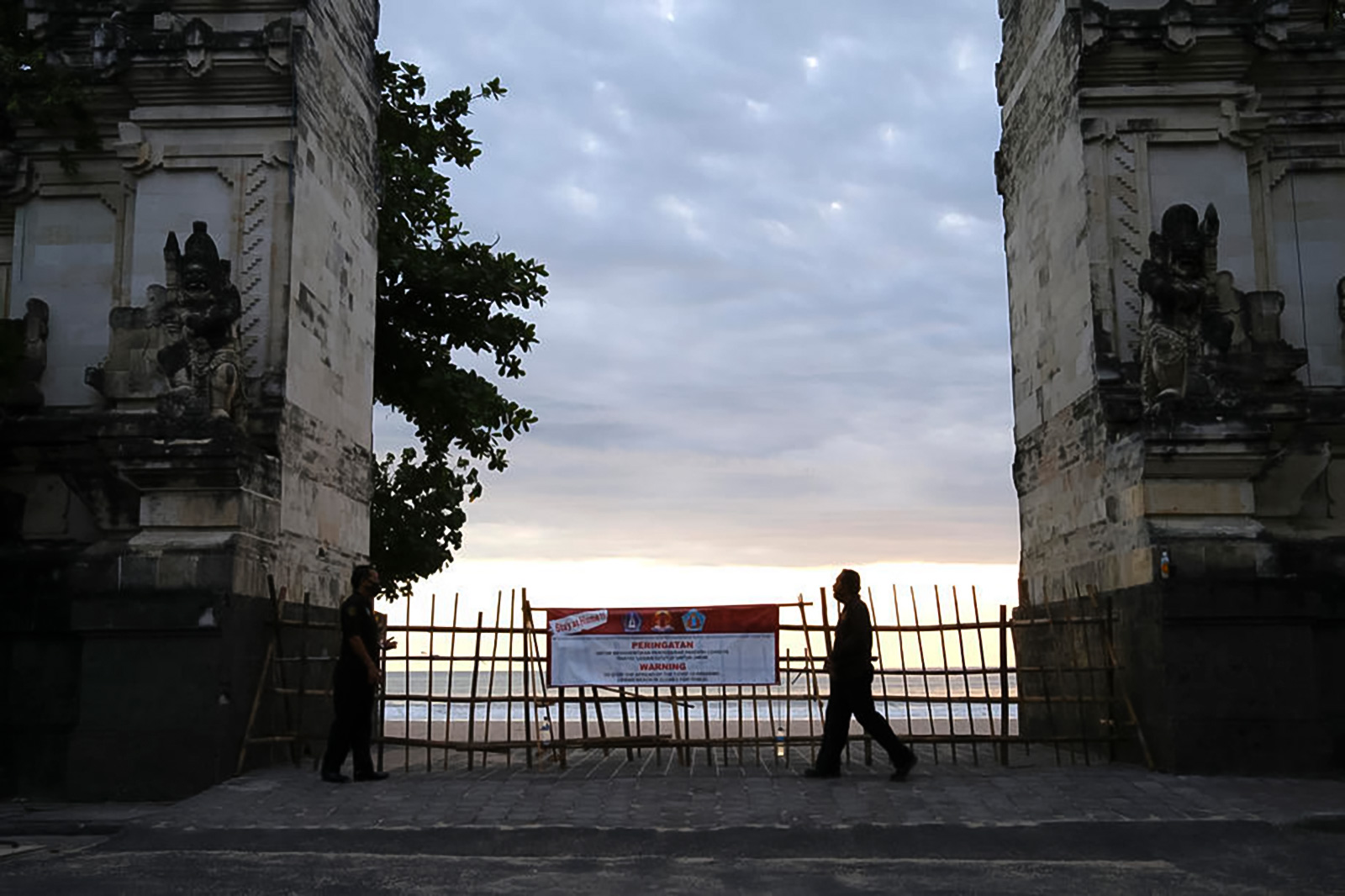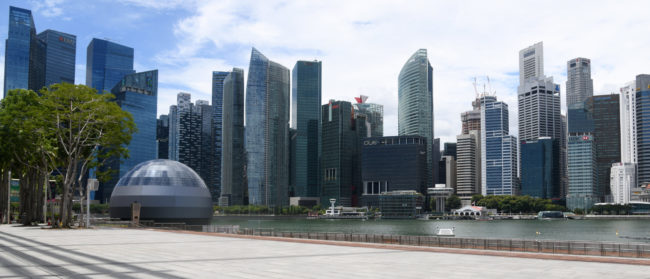The fallout from the Covid-19 pandemic has badly impacted almost every sector in the global economy, but none more so than the travel industry. In tourist hotspots around the world businesses are faltering, with no income stream, and no sign of when things will return to normal.
In Bali, Indonesia the pandemic hit quickly and mercilessly, transforming the tourist-reliant island for the worse overnight. The people behind the affected industries had their lives upturned in a matter of hours, finding themselves unemployed and their businesses closed indefinitely with few customers to patronise them.
The Indonesian government is working on a tourism recovery strategy, but their hope for a tourism boom in 2021 may come too late for some. For many in Bali, this is not a problem of boredom but of survival, as while the government has offered tax breaks for businesses affected by the pandemic, many locals struggle to make ends meet.
With the late-April ban on all international travellers entering the country in theory set to be lifted on June 1, marine tourism operators, a pillar of the local economy, are now wondering if and when visitors will return so businesses can reopen and work resume. Other operators, witnessing a flourishing marine life since the downturn in visitors, believe the pandemic has highlighted the need for Bali’s tourism industry to adopt more environmentally sustainable practices.
Indonesian Nyoman Roman owns and operates Let’s Dive Tulamben, a locally-run dive shop on Bali’s north coast. His business was growing quickly upon opening last year, until everything changed overnight. Nyoman says Balinese communities are heavily reliant on tourism for their livelihoods, with marine tourism one of the biggest drawcards.
Northern Bali has tended to benefit less from the wealth brought into the south of the island, but its communities have still been able to build up an economy around the reefs and shipwrecks off its coast.
Nyoman says his family was poor growing up, but the diving industry has brought opportunities for young people in Bali’s north. “We really depend on tourism to help create a better life for our families,” Nyoman told the Globe from his home in Tulamben.
Before the pandemic hit, 30 of Nyoman’s cousins worked as scuba diving instructors, and his business employed six Balinese locals. Now he is worried about how his staff will feed themselves, and is himself relying on friends overseas to help pay back bank loans so his business can stay afloat.
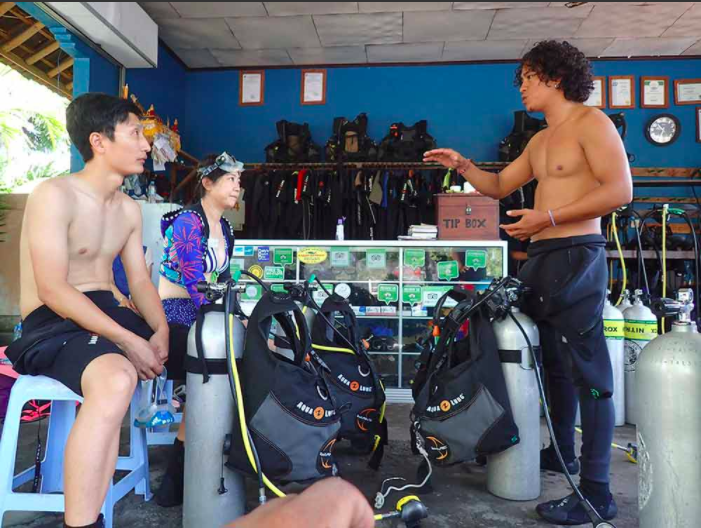
I can’t imagine if this continues for many more months what will happen here, and how people will continue to survive
Nyoman says even if the travel ban is lifted next week, he fears it may be a long time before tourists return.
Over six million international tourists visited Bali in 2019, but fear of contracting the virus, coupled with the possibility of two weeks in quarantine, will likely drastically reduce international travel for the foreseeable future. The World Travel and Tourism Council estimates almost 10% of Indonesia’s workforce are employed in the tourism industry, with a significant drop in tourist numbers set to have a significant impact on the country’s economy.
While businesses in Bali say they have seen an increase in Indonesian domestic tourists in recent years, 90% of Nyoman’s customers come from overseas. He says open and easy international travel is vital for marine tourism businesses to get back on their feet.
“I can’t imagine if this continues for many more months what will happen here, and how people will continue to survive,” he said. “We are just starting the dry season in Bali, and usually we get the most tourists here from June to September, so if tourism is still closed during this time I don’t know if we will recover.”
Community spirit in Bali, however, remains high. Expats and locals alike are coming together to support people in need, with fundraising drives and food distribution networks.
Businesses that can are supporting their employees and contractors with Sembako, staple foods like rice and eggs, so no one goes hungry.
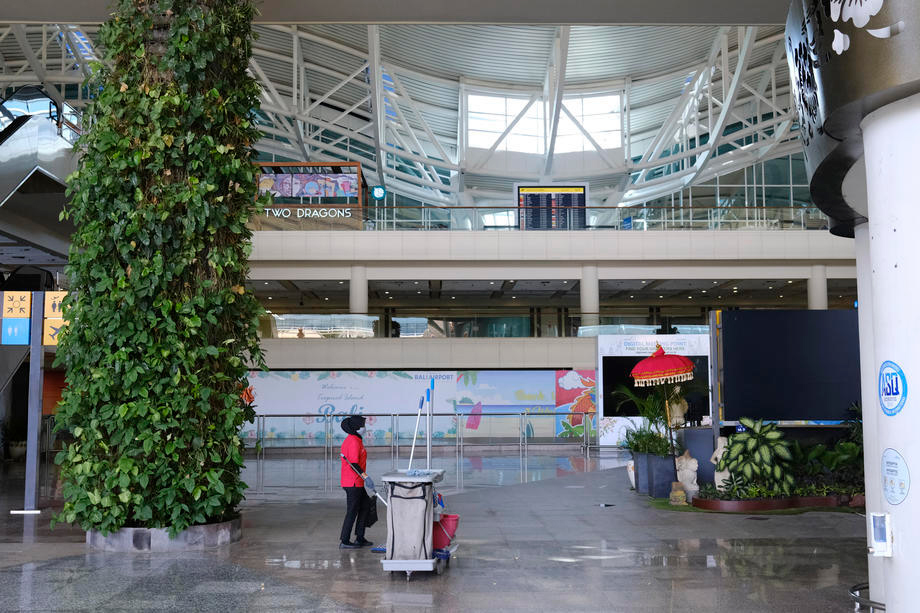
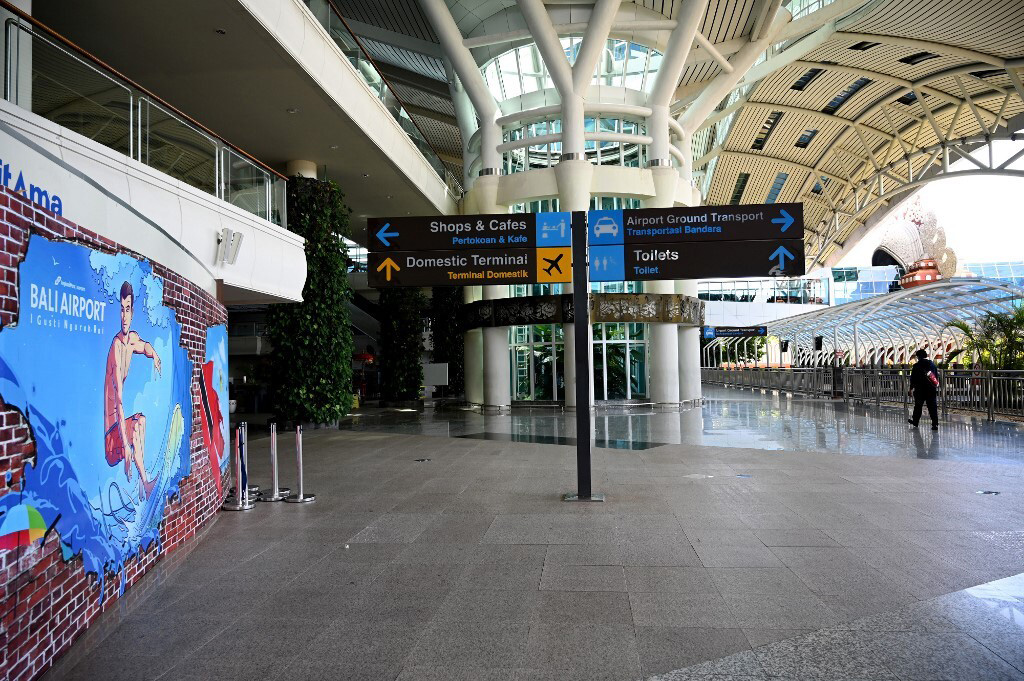
Darren Warburton, originally from the UK, and his Australian partner Prashanti Pyke, decided to see through the shutdown in their new home of Nusa Lembongan, a small island 30 minutes by speedboat from the east coast of Bali. Along with Nusa Lembongan local, Wayan Supratman, they own and run Siren Diving, spending their days guiding divers and snorkelers around the colourful reefs.
“Most people come to the island for the water,” said Darren, explaining that marine-based tourism was now a major industry for locals and expats alike.
As a marker of diving’s importance, Darren points out the incredible expansion of PADI in recent years, arguably the world’s best known organisation of divers and diving education. “PADI has seen exponential growth [generally], and Indonesia has been their largest growing area,” he said.
There are now around 50 dive shops on Nusa Lembongan and its two neighbouring islands, Nusa Ceningan and Nusa Penida, bringing tourists across from Bali daily. Marine tourism has caused the local economy on the islands to boom in the past two decades, growing from a small community of families reliant on seaweed farming, to one of the region’s most popular diving destinations.
But with the shutdown forcing everyone out of the water and back home, the industry is facing its biggest crisis yet.
When Siren Diving celebrated its third anniversary on April 1, there were no party hats or cake to be seen. Less than two weeks earlier on March 21, Bali’s Governor Wayan Koster instructed mayors to shutter tourist destinations in their areas, causing panic across the industry. The expats working in tourism were doubly hit by visa insecurity, and the fear of being cut off from their families back home.
Like many of the tourists visiting Bali at the time, some expats scrambled for a flight out. Darren, Prashanti and Wayan shut their doors, and watched as friends and staff who had lived and worked on the island for years rushed to pack up their lives. Even now, as Indonesia’s Covid-19 recovery is visible just over the horizon, boats to the island remain cut off, and the thought of a diving holiday remains a remote prospect to most.
Darren says they are waiting it out, preparing for a long break before people will return.
Bali has faced disruptions to its tourism industry before. Mount Agung, the volcano in Bali’s northeast, grounded flights with a series of eruptions throughout 2017 and 2018. Like hotels and restaurants, the diving industry was hit hard with cancellations, and many diving instructors lost their jobs.
But when planes could land safely again, the industry bounced back. It is this resilience that has given many people on the island hope.
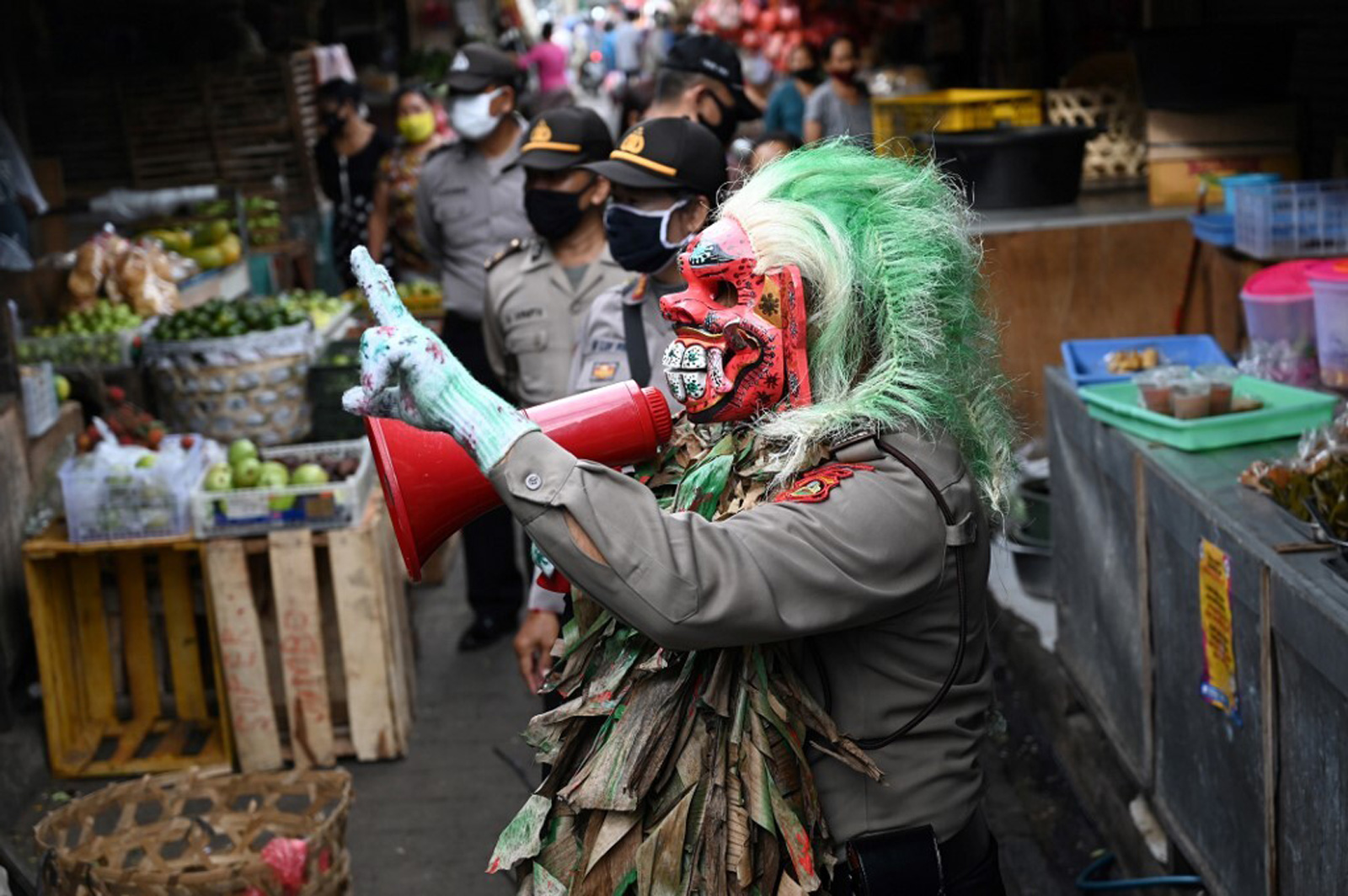
There seems to be a little explosion in fish life coming back, the coral looks happier
But Pak Gus Agung, the chairman of the Bali Tourism Board, says this crisis is unlike any the island has faced before, and businesses will have to take it slow to protect lives.
The Bali Tourism Board, made up of nine tourism associations from across the island, is supporting its partners through the pandemic with regular webinars, online training events, and updates on protocols. Pak Agung says the priority is safety, but he is hopeful that with strict controls in place, the island will begin opening up in October to travellers from countries where the pandemic is contained.
“We have a roadmap for a slow reopening,” he said cautiously.
While they wait, Darren says that the fall in tourism has highlighted how the industry could be made more environmentally friendly. With boat and diver numbers now low, he says that marine life has blossomed in formerly high-traffic areas.
“There seems to be a little explosion in fish life coming back, the coral looks happier,” said Darren. Thresher sharks, normally a rare sight, have been regularly spotted off Nusa Penida’s north coast. Meanwhile, the waste produced by the high numbers of tourists in Bali and its neighbouring islands has been drastically reduced, and the local waste management facilities are less overwhelmed.
Darren hopes this break could provide an opportunity for Bali’s marine tourism to become more sustainable. “This could be a reset button that allows everyone to benefit,” he said.
With tourism operators now experiencing the quiet streets of a tourist-free Bali, the impact tourism has had can be seen clearly. By supporting initiatives like limiting daily visitors to dive sites, effective waste management programmes, and environmental conservation projects, tourism operators could ensure the gains made by marine ecosystems are maintained and encouraged when tourism restarts.
While there are no guarantees of how the next few months will pan out, communities across Bali have not lost hope that a recovery like the one seen in 2017 will offer some respite in the near future, as they prepare for the first pioneering tourists to return to the island.
